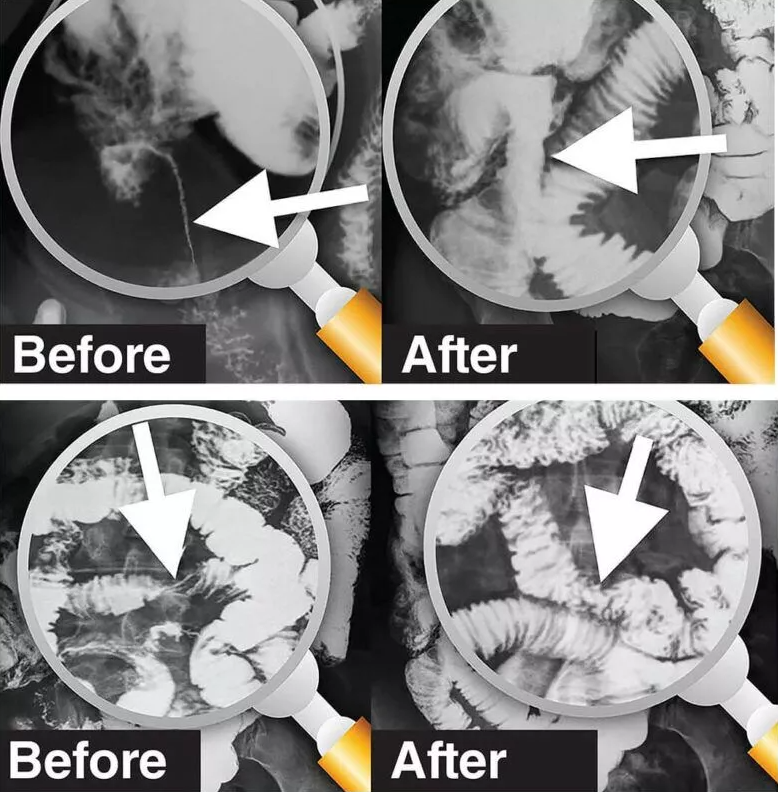Signs, Causes, and Treatment
Do you ever experience severe abdominal pain, bloating, or changes in bowel movements that just won’t go away? These symptoms could be warning signs of a bowel obstruction, a condition that can be both painful and potentially dangerous if left untreated. In this easy-to-read blog, we’ll delve into the world of bowel obstructions, exploring their signs, causes, and treatment options to help you better understand and manage this condition.
Understanding Bowel Obstructions
Bowel obstructions occur when there’s a partial or complete blockage in the intestines, preventing the normal passage of food, liquids, and gas. It’s like a traffic jam in your digestive system, and it can be caused by various factors, ranging from structural issues to lifestyle choices.

Signs of Bowel Obstruction
Spotting the signs of a bowel obstruction early is crucial for timely treatment. Here are some common symptoms to watch out for:
- Abdominal Pain: The hallmark symptom of a bowel obstruction is severe, crampy abdominal pain. This pain may come in waves and is often located in the lower abdomen.
- Bloating: You may notice that your abdomen becomes distended or swollen. This is due to the accumulation of gas and fluids trapped in the blocked intestines.
- Vomiting: Frequent and persistent vomiting is another red flag. The vomit may contain partially digested food or bile.
- Constipation: Bowel movements may become infrequent or stop altogether. You might also experience diarrhea if the obstruction is partial, as liquid stool can pass around the blockage.
- Inability to Pass Gas: The inability to pass gas is a telling sign of a bowel obstruction. Gas builds up behind the blockage, contributing to the bloating and discomfort.
- Loss of Appetite: Many people with bowel obstructions lose their appetite and feel nauseated.
- Dehydration: The vomiting and inability to eat or drink can lead to dehydration, which may manifest as dry mouth, dark urine, or dizziness.
Common Causes of Bowel Obstructions
Understanding the root causes of bowel obstructions can help you take steps to reduce your risk. Here are some of the most common causes:
- Adhesions: After abdominal surgery, scar tissue known as adhesions can form and cause the intestines to become stuck together, leading to an obstruction. Adhesions are the most common cause of bowel obstructions.
- Hernias: When a portion of the intestine protrudes through a weakened abdominal wall, it can become trapped and cause a blockage.
- Tumors: Benign or cancerous growths within the intestines or nearby organs can obstruct the flow of contents through the digestive tract.
- Twisting of the Bowel (Volvulus): The intestines can twist on themselves, cutting off the blood supply and causing a blockage.
- Intussusception: This occurs when one part of the intestine telescopes into another, much like a collapsible telescope, resulting in an obstruction.
- Inflammatory Bowel Disease (IBD): Conditions like Crohn’s disease or ulcerative colitis can lead to inflammation and scarring within the intestines, potentially causing an obstruction.
- Foreign Objects: In rare cases, swallowing a foreign object that cannot pass through the digestive system can lead to a blockage.
Natural Treatment Options for Bowel Obstructions
If you suspect you have a bowel obstruction or experience any of the symptoms mentioned, it’s crucial to seek immediate medical attention. Timely treatment can prevent complications and relieve your discomfort.
Clear Passage Physical Therapy® and the Wurn technique® used at Clear Passage has been shown in peer reviewed studies to be the most effective way to alleviate the adhesions from surgery, trauma, radiation, or inflammation. It is an all-natural, hands on, deep manual therapy.
Other Treatment Options for Bowel Obstructions
- Nasogastric Tube: To relieve pressure and remove fluids and gas from the stomach and intestines, a thin tube may be inserted through the nose and into the stomach.
- IV Fluids: Dehydration is a common complication of bowel obstructions, so you may receive fluids through an intravenous (IV) line to stay hydrated.
- Bowel Rest: In some cases, your doctor may recommend a period of bowel rest, which means avoiding food and drink for a specific time to allow the intestines to rest and heal.
- Medications: Pain relievers and anti-nausea medications may be prescribed to manage your symptoms.
- Surgery: If the obstruction is severe or doesn’t resolve with other treatments, surgery may be necessary to remove the blockage or repair any underlying issues, such as adhesions or hernias. Surgery always creates more scar tissue.
- Treatment for Underlying Causes: If a specific underlying condition like Crohn’s disease or a tumor is causing the obstruction, treatment for that condition will be initiated.
Preventing Bowel Obstructions
While some risk factors for bowel obstructions are beyond your control, there are steps you can take to reduce your risk:
- Stay Hydrated: Drinking plenty of water helps maintain healthy bowel function and reduces the risk of constipation.
- Dietary Fiber: A diet rich in fiber from fruits, vegetables, and whole grains promotes regular bowel movements and can prevent constipation.
- Exercise Regularly: Physical activity helps maintain overall bowel health by promoting normal bowel function.
- Manage Digestive Disorders: If you have conditions like IBD, follow your healthcare provider’s recommendations for managing and treating these conditions.
- Be Mindful of Medications: Some medications can lead to constipation or other digestive issues. Discuss potential side effects with your healthcare provider.
- Avoid Overuse of Laxatives: Overusing laxatives can disrupt normal bowel function and potentially lead to dependency.
- Seek Prompt Treatment: If you have a history of abdominal surgery, be vigilant about any symptoms of a possible bowel obstruction and seek medical help promptly.
In Conclusion
Bowel obstructions can be uncomfortable, painful, and even life-threatening if not addressed promptly. Being aware of the signs and risk factors is the first step toward prevention and early intervention. If you or someone you know experiences symptoms suggestive of a bowel obstruction, don’t hesitate to reach out to a healthcare professional. With timely treatment, most cases of bowel obstruction can be managed effectively, allowing you to regain your comfort and digestive health. Clear Passage therapists have had many successes decreasing or eliminating the adhesions that block the intestines, allowing our patients to live full and product


